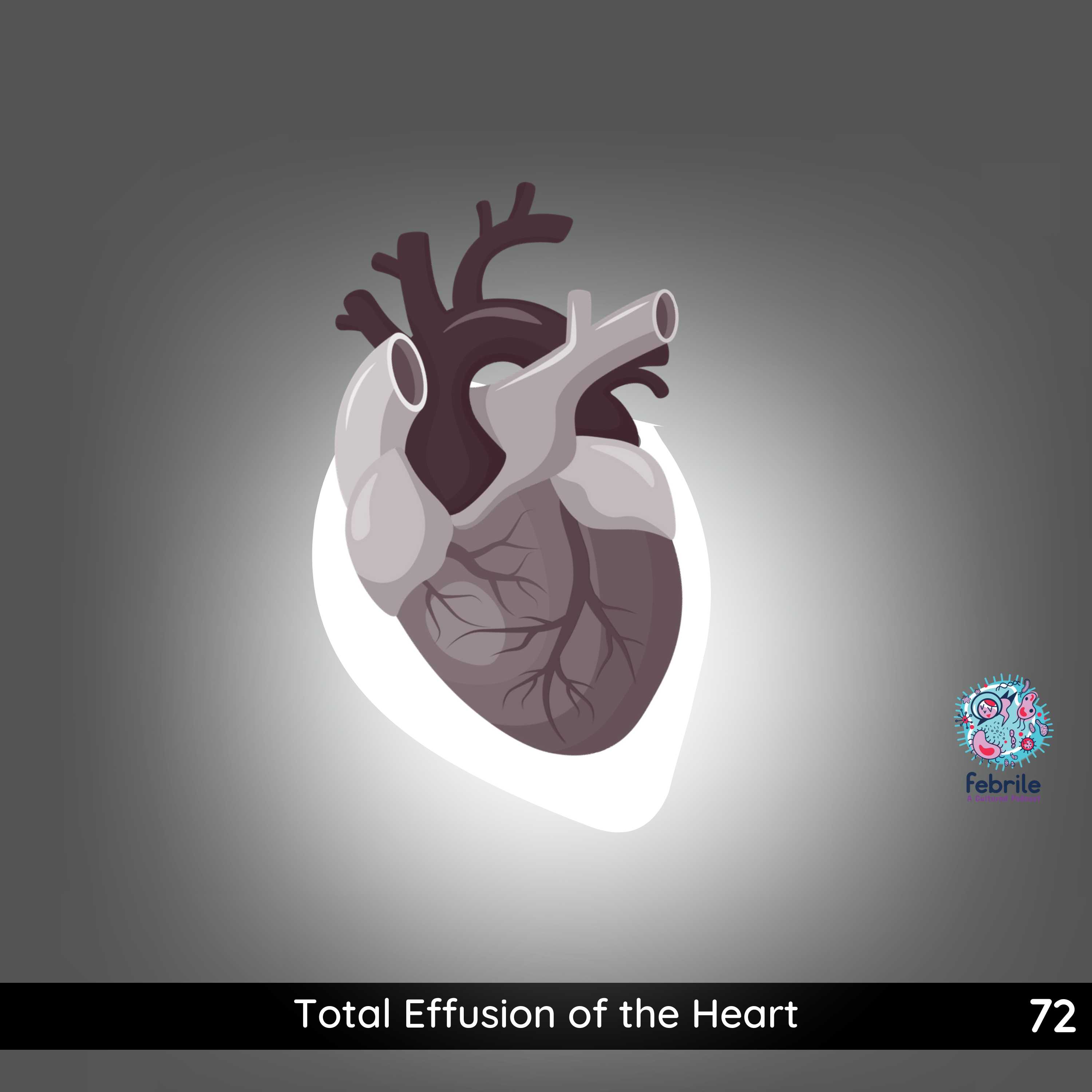Table of Contents
Credits
Hosts: Annie Jacobs, Sara Dong
Guest: Christopher Polk
Writing: Annie Jacobs, Christopher Polk, Sara Dong
Producing/Editing/Cover Art/Infographics: Sara Dong
Our Guests
Guest Co-Host
Annie Jacobs, MD

Annie Jacobs is a third-year Internal Medicine resident at Atrium Health: Carolinas Medical Center in Charlotte, North Carolina. She recently successfully completed the ID Match process and will be starting her ID Fellowship at UT Southwestern in July.
Guest Discussant
Christopher Polk, MD

Christopher Polk is an Associate Professor of Medicine and Assistant Specialty Director of Infectious Diseases for Research in the Division of Infectious Diseases at the Atrium Health Wake Forest School of Medicine in Charlotte, NC. His research interests include COVID-19, CRE-producing infections, and HIV. He leads numerous industry-sponsored clinical trials of new antimicrobials, investigator-initiated studies, and implementation of health system protocols for treatment of emerging infections.
Culture
Annie shared the podcast Disappearances by Sarah Turney
Christopher likes to run and hike and mentioned Febrile as a podcast he listens to!
Consult Notes
Case Summary
- 70 yo M with hypertension and gastric cancer s/p resection and chemotherapy 10 years ago who presented with one week of cough and shortness of breath. Found to have new onset atrial fibrillation and massive pericardial effusion. Ultimately had positive Quantiferon and pericardial fluid positive for adenosine deaminase
- 23 yo previously healthy male in Chogoria, Kenya who presented with 2 weeks of shortness of breath and cough due to massive pericardial effusion. GeneXpert testing of pericardial effusion confirmed diagnosis of TB pericarditis.
Key Points
Pericardial disease can present in a few different ways.
- In this episode, we discussed acute pericarditis, pericardial effusion, and very briefly constrictive pericarditis
- Acute pericarditis due to an infectious etiology might present with:
- Chest pain (typically sharp and pleuritic, might be improved with sitting up and leaning forward)
- Systemic symptoms such as fever and leukocytosis
- Pericardial friction rub
- ECG changes, such as widespread ST elevation or PR depression
- Pericardial effusion
- Pericardial effusions can be seen:
- without hemodynamic compromise (which may be asymptomatic), or
- with cardiac tamponade, usually presents with signs/symptoms related to impaired cardiac function (such as dyspnea, elevated jugular venous pressure, hypotension)
- Christopher touched on some clues to the presence of pericardial effusion, such as distant heart sounds, low voltage EKG, or cardiomegaly on CXR (classically a “water bottle” sign of an enlarged cardiac silhouette)
- He also mentioned electrical alternans and pulsus paradoxus
Etiologies of pericardial disease
We of course focused on the infectious etiologies, including:
- Viral: Almost any virus can impact the pericardium
- HIV
- Coxsackievirus
- Echovirus
- Adenovirus
- Epstein-Barr virus
- Cytomegalovirus
- Influenza
- Others: COVID-19, varicella, rubella, hepatitis B, mumps, parvovirus B19
- Bacterial:
- S.aureus
- S.pneumoniae, other Streptococcal disease
- Haemophilus
- Neisseria (N.gonorrhoeae or N.meningitidis)
- Chlamydia (psittaci or trachomatis)
- Legionella
- Salmonella
- Borrelia burgdorferi
- Mycoplasma
- Nocardia
- Others: Tropheryma whippelii, Treponema, Rickettsia, Actinomyces, Ureaplasma
- Tuberculosis is the most common cause in countries where TB is endemic
- Fungal: Blastomyces, Coccidioides, Histoplasma, Candida, Aspergillus
- Parasitic: Echinococcus (amebic), Toxoplasma
Non-infectious causes:
- Bleeding
- Post-myocardial infarction
- Metabolic (such as uremia, dialysis-associated, myxedema)
- Malignancy (especially lung and breast cancer, Hodgkin lymphoma)
- Collagen vascular disease / Connective soft tissue disease
- Drugs and toxins
- Trauma
- Idiopathic or immune-mediated
- Radiation
TB Pericarditis - Epidemiology, Pathogenesis, Clinical Presentation
- This episode presented two cases of tuberculous pericarditis from 2 different settings
- TB pericarditis is estimated to occur in 1-2% of cases of pulmonary TB
- This is the most common cause of pericarditis in countries where TB remains endemic. In this series from South Africa, TB pericarditis accounted for 70% of cases referred for diagnostic pericardiocentesis
- There is also particular risk in areas with uptrending HIV incidence (and resurgence of TB)
- Disease may occur via extension of infection from lung or tracheobronchial tree, adjacent lymph nodes, spine, sternum, or miliary spread – but usually developed by retrograde lymphatic spread from peritracheal, peribronchial, or mediastinal lymph nodes
- The immune response to acid-fast bacilli penetrating the pericardium: protein antigens of bacilli induce delayed hypersensitivity responses, stimulating lymphocytes to release lymphokines that activate macrophages and influence granuloma formation
- Some have described four pathology stages (such as in the key resource from Mayosi, et al. below):
- 1. Fibrinous exudate with initial PMN leukocytosis, relatively abundant mycobacteria, early granuloma formation with loose organization of macrophages and T cells
- 2. Serosanguinous effusion with predominantly lymphocytic exudate with monocytes and foam cells
- 3. Absorption of effusion with organization of granulomatous caseation and pericardial thickening, and ultimately fibrosis
- 4. Constrictive scarring: fibrosing visceral and parietal pericardium contracts and may become calcified, encasing heart in fibrocalcific skin that impedes diastolic filling
- General symptoms of pericarditis and pericardial effusion were discussed previously – the nature of symptoms will depend on stage of infection, extent of TB disease outside of the pericardium, and degree of pericardial involvement. In most cases, TB pericarditis is insidious with a variable range of symptoms
- Read more in these references:
- Key resource: Mayosi BM, Burgess LJ, Doubell AF. Tuberculous pericarditis. Circulation. 2005;112(23):3608-3616. doi:10.1161/CIRCULATIONAHA.105.543066
- Reuter H, Burgess LJ, Doubell AF. Epidemiology of pericardial effusions at a large academic hospital in South Africa. Epidemiol Infect. 2005;133(3):393-399. doi:10.1017/s0950268804003577
- Sagristà-Sauleda J, Permanyer-Miralda G, Soler-Soler J. Tuberculous pericarditis: ten year experience with a prospective protocol for diagnosis and treatment. J Am Coll Cardiol. 1988;11(4):724-728. doi:10.1016/0735-1097(88)90203-3
- A report for children: Obihara NJ, Walters E, Lawrenson J, Garcia-Prats AJ, Hesseling AC, Schaaf HS. Tuberculous Pericardial Effusions in Children. J Pediatric Infect Dis Soc. 2018;7(4):346-349. doi:10.1093/jpids/pix087
TB Pericarditis - Diagnosis
- Diagnosis is established by detection of bacilli in smear or culture of pericardial fluid and/or by detection of bacilli or caseating granulomata on histologic exam of pericardium
- Consider especially in:
- Patients with pericarditis who do not have self-limited course and in setting of risk factors for TB exposure
- TB demonstrated elsewhere in body
- Lymphocytic pericardial exudate with elevated adenosine deaminase (ADA) level
- Initial evaluation:
- Chest x-ray
- Echocardiogram
- Evaluation of sputum for AFB smear and culture
- Others might include chest CT or MRI (can demonstrate pericardial effusion, pericardial thickening, lymphadenopathy)
- A tuberculin skin test (TST) and/or interferon gamma release assay (IGRA) may or may not be helpful:
- A positive test result in patient with TB risks may support your clinical impression – but a negative test does not rule out TB (and does not distinguish between latent and active T infection)
- TST is positive in most immunocompetent patients with TB pericarditis (85%), but TST often negative in patients with HIV infection and TB pericarditis
- Pericardiocentesis is warranted for evaluation of suspected TB pericarditis
- Open drainage (rather than pericardiocentesis) does not seem to influence need for pericardiectomy or reduce likelihood of subsequent constriction or death
- Send fluid for:
- Cell count
- Protein
- LDH
- Acid-fast smear/culture
- Gram stain and bacterial culture
- Adenosine deaminase concentration (ADA)
- Cytology
- Typical pericardial fluid in setting of TB would be exudative with high protein content and increased leukocyte count (predominance of lymphocytes and monocytes)
- AFB are seen on smear of pericardial fluid in ~40-60% of patients with TB pericarditis, and yield is increased by culture
- PCR for mycobacterial DNA off of pericardial fluid may be useful. Most studies on validity have been in small numbers and in endemic areas
- Performance of GeneXpert in this setting has limited data. This is not approved by FDA for use with pericardial fluid and would not replace mycobacterial culture or histopath
- For pericardial ADA, different cutoff levels have been suggested (ranging from 30-60 units/L)
- Lower ADA levels have been observed in patients with HIV infection and low CD4 count
- ADA testing is limited to special labs and need to consider pretest probability (likely low utility in areas with low prevalence)
- Data on use of interferon-gamma testing for pericardial fluid are limited, but you can read more in this South Africa study
- Pericardial biopsy may be necessary in some cases, particularly in areas where TB is low incidence. In areas where TB is endemic and there is high clinical suspicion, those patients would be started on empiric anti-TB therapy
- Tissues can be stained for AFB and examined for histological evidence of granulomatous inflammation
- Sensitivity of pericardial biopsy ranges from 10-64%
- Read more in these references:
- Key resource: Mayosi BM, Burgess LJ, Doubell AF. Tuberculous pericarditis. Circulation. 2005;112(23):3608-3616. doi:10.1161/CIRCULATIONAHA.105.543066
- European society of cardiology guidelines: Maisch B, Seferović PM, Ristić AD, et al. Guidelines on the diagnosis and management of pericardial diseases executive summary; The Task force on the diagnosis and management of pericardial diseases of the European society of cardiology. Eur Heart J. 2004;25(7):587-610. doi:10.1016/j.ehj.2004.02.002
- ATS/IDSA Guidelines for TB diagnosis: Lewinsohn DM, Leonard MK, LoBue PA, et al. Official American Thoracic Society/Infectious Diseases Society of America/Centers for Disease Control and Prevention Clinical Practice Guidelines: Diagnosis of Tuberculosis in Adults and Children. Clin Infect Dis. 2017;64(2):e1-e33. doi:10.1093/cid/ciw694
- Reuter H, Burgess L, van Vuuren W, Doubell A. Diagnosing tuberculous pericarditis. QJM. 2006;99(12):827-839. doi:10.1093/qjmed/hcl123
- Reuter H, Burgess LJ, Carstens ME, Doubell AF. Adenosine deaminase activity–more than a diagnostic tool in tuberculous pericarditis. Cardiovasc J S Afr. 2005;16(3):143-147..
- Sagristà-Sauleda J, Permanyer-Miralda G, Soler-Soler J. Tuberculous pericarditis: ten year experience with a prospective protocol for diagnosis and treatment. J Am Coll Cardiol. 1988;11(4):724-728. doi:10.1016/0735-1097(88)90203-3
- Cegielski JP, Lwakatare J, Dukes CS, et al. Tuberculous pericarditis in Tanzanian patients with and without HIV infection. Tuber Lung Dis. 1994;75(6):429-434. doi:10.1016/0962-8479(94)90116-3
- Zeka AN, Tasbakan S, Cavusoglu C. Evaluation of the GeneXpert MTB/RIF assay for rapid diagnosis of tuberculosis and detection of rifampin resistance in pulmonary and extrapulmonary specimens. J Clin Microbiol. 2011;49(12):4138-4141. doi:10.1128/JCM.05434-11
- Burgess LJ, Reuter H, Carstens ME, Taljaard JJ, Doubell AF. The use of adenosine deaminase and interferon-gamma as diagnostic tools for tuberculous pericarditis. Chest. 2002;122(3):900-905. doi:10.1378/chest.122.3.900
Treatment for TB pericarditis
- Treatment dramatically reduces mortality, and it has also been shown to reduce the likelihood of constrictive pericarditis
- The approach to therapy is the same as that in pulmonary TB. You can check out the ATS/CDC/IDSA guidance below:
- The role of corticosteroids
- Does not seem to be beneficial in setting of pericarditis that is not constrictive
- But, experts often use steroids for patients with constrictive TB pericarditis and those at high risk of constrictive disease
- Resources:
- Hakim JG, Ternouth I, Mushangi E, Siziya S, Robertson V, Malin A. Double blind randomised placebo controlled trial of adjunctive prednisolone in the treatment of effusive tuberculous pericarditis in HIV seropositive patients. Heart. 2000;84(2):183-188. doi:10.1136/heart.84.2.183
- Mayosi BM, Ntsekhe M, Bosch J, et al. Prednisolone and Mycobacterium indicus pranii in tuberculous pericarditis. N Engl J Med. 2014;371(12):1121-1130. doi:10.1056/NEJMoa1407380
- Randomized trial including adults with TB pericarditis in South Africa (~⅔ also had HIV infection)
- Steroids did not have significant effect on composite outcome (death, cardiac tamponade requiring pericardiocentesis, development of constrictive pericarditis)
- Incidence of constrictive pericarditis was reduced with steroids, but patients had increased HIV-associated malignancy
- Strang JI, Kakaza HH, Gibson DG, Girling DJ, Nunn AJ, Fox W. Controlled trial of prednisolone as adjuvant in treatment of tuberculous constrictive pericarditis in Transkei. Lancet. 1987;2(8573):1418-1422. doi:10.1016/s0140-6736(87)91127-5
- Another South African study where patients received prednisolone or placebo with their T therapy – steroids hastened clinical improvement and reduced need for pericardiectomy
- Dooley DP, Carpenter JL, Rademacher S. Adjunctive corticosteroid therapy for tuberculosis: a critical reappraisal of the literature. Clin Infect Dis. 1997;25(4):872-887. doi:10.1086/515543
- Suggested steroids can shorten time to resolution of clinical symptoms and decrease reaccumulation of fluid
- Ntsekhe M, Wiysonge C, Volmink JA, Commerford PJ, Mayosi BM. Adjuvant corticosteroids for tuberculous pericarditis: promising, but not proven. QJM. 2003;96(8):593-599. doi:10.1093/qjmed/hcg100
- Pericardiectomy is needed in setting of persistent constrictive pericarditis despite TB therapy
- The timing is unclear, although some use the general time frame of 4-8 wks of failure to improve or hemodynamic changes that are deteriorating
- Resources:
- Sagristà-Sauleda J, Permanyer-Miralda G, Soler-Soler J. Tuberculous pericarditis: ten year experience with a prospective protocol for diagnosis and treatment. J Am Coll Cardiol. 1988;11(4):724-728. doi:10.1016/0735-1097(88)90203-3
- Kim MS, Chang SA, Kim EK, et al. The Clinical Course of Tuberculous Pericarditis in Immunocompetent Hosts Based on Serial Echocardiography. Korean Circ J. 2020;50(7):599-609. doi:10.4070/kcj.2019.0317
- Long R, Younes M, Patton N, Hershfield E. Tuberculous pericarditis: long-term outcome in patients who received medical therapy alone. Am Heart J. 1989;117(5):1133-1139. doi:10.1016/0002-8703(89)90873-9
- McCaughan BC, Schaff HV, Piehler JM, et al. Early and late results of pericardiectomy for constrictive pericarditis. J Thorac Cardiovasc Surg. 1985;89(3):340-350.
Infographics
Goal
Listeners will be able to discuss the diagnosis of tuberculous pericarditis
Learning Objectives
After listening to this episode, listeners will be able to:
- Describe the differential of infectious pericarditis
- Describe the risk factors associated with TB pericarditis
- Discussion the evaluation and management of suspected TB pericarditis
Disclosures
Our guests as well as Febrile podcast and hosts report no relevant financial disclosures
Citation
Polk, C., Jacobs, A., Dong, S. “#72: Total Effusion of the Heart”. Febrile: A Cultured Podcast. https://player.captivate.fm/episode/6c068392-aaf5-4149-8116-ab641fb126c8


